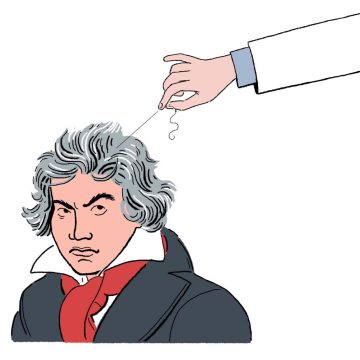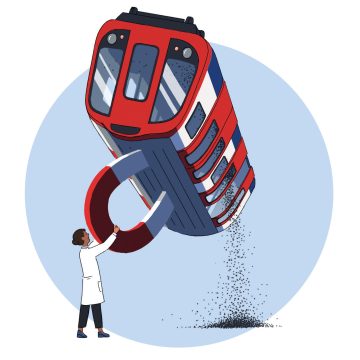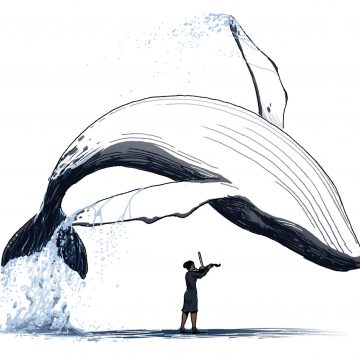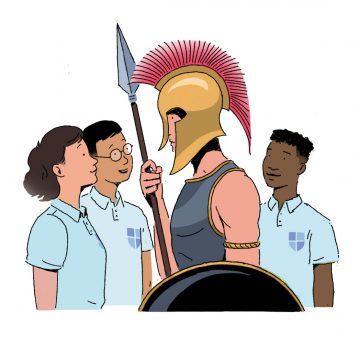Campendium: Michaelmas Term 2023
Bawdy bards, robot chefs and the astonishing tale behind a jewelled 15th-century prayer book in Trinity College Library.
Annual Address
Vice-Chancellor predicts leading role for Cambridge in start-of-year speech
New Vice-Chancellor Deborah Prentice has outlined an agenda focused on people, the planet and a national role for Cambridge in her first Annual Address.
“Our people are the means and the ends of the work of a university,” she said. “It is people who animate the community of scholars, and people whose imaginations and ambitions fuel the impact of the public institution.”
She acknowledged the challenges of recent years and said the University would aim to improve pay and conditions to be fair and equitable across the University, competitive with peers, and financially sustainable. “That’s a tall order, and it will take a multi-year plan to get there.”
Vice-Chancellor Prentice said she hoped to continue Cambridge’s contribution to the health of the planet. The University, she pointed out, is “aligned around a desire to make a difference in this critical domain… Greater alignment simply means the University will build capacity to support the community of scholars working in this area, enable their interactions and cross-fertilisation, and position their work for greatest impact.”
And she reiterated her commitment to creating a forum for public dialogue on difficult topics, enhancing the role of the University as an environment where free speech is actively fostered. In conclusion, she called for Cambridge to take on a leading role as a national institution. “I’m convinced that Cambridge cannot be a great global university without being a great national and a great regional university too. Our impact on the world starts at home.”
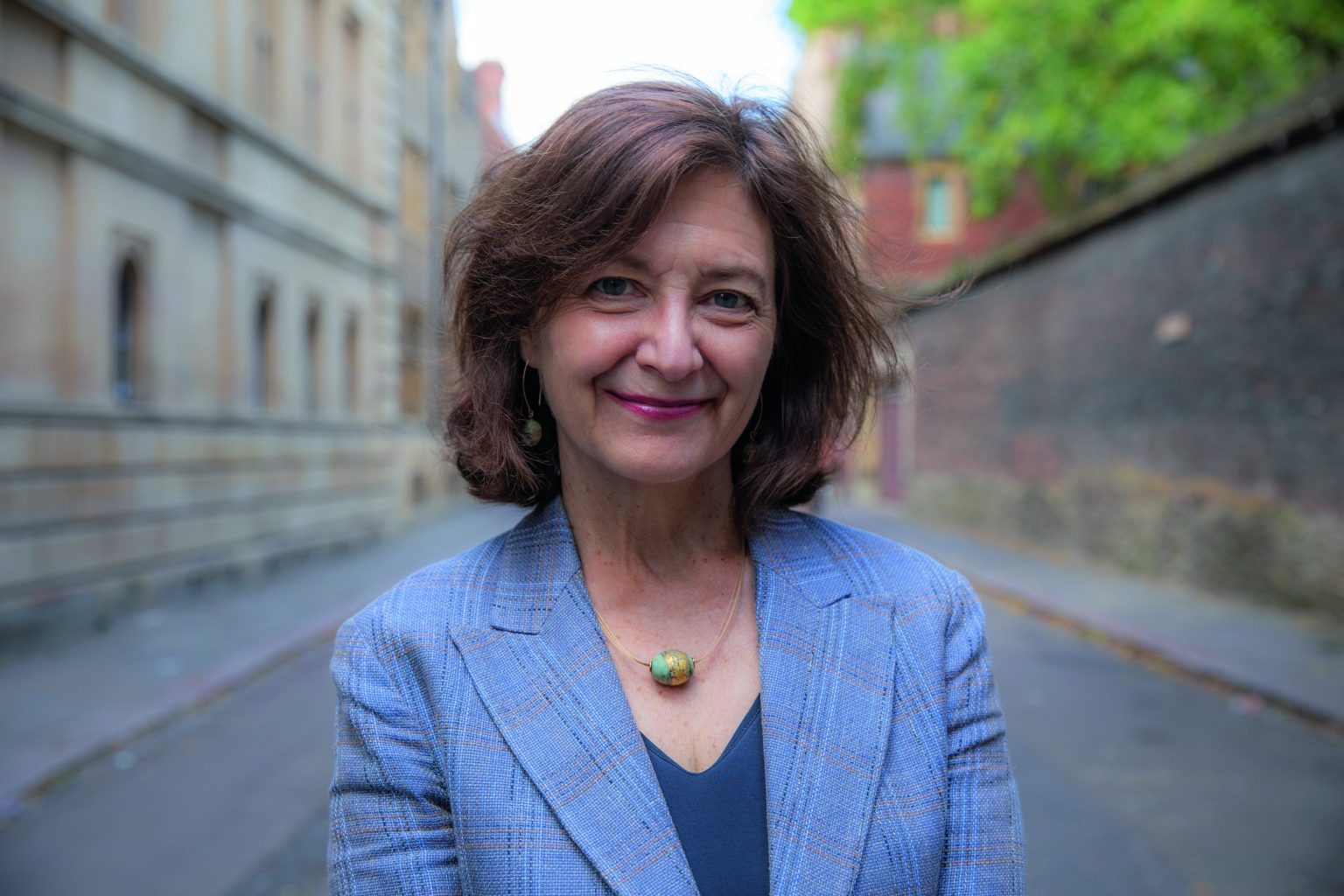
Philanthropy
$72m gift from Arcadia to support the next phase of the Endangered Landscapes and Seascapes Programme, helping restore endangered ecosystems.
Scholarships
Award-winning grime artist Stormzy and HSBC UK will support 36 new Stormzy Scholarships for applicants of Black or mixed Black heritage. The ‘Stormzy effect’ has helped Cambridge to attract more applications from a traditionally underrepresented group, with the number of UK Black students admitted to undergraduate courses more than doubling in the past five years.
Deconstructed
Researchers find Trinity College prayer book belonged to Thomas Cromwell
A jewelled 15th-century prayer book in Trinity College Library has been identified as belonging to Thomas Cromwell, chief minister to Henry VIII.
Curator Alison Palmer recognised the binding of the Book of Hours from a portrait of Cromwell painted by Hans Holbein the Younger in 1532/3.
A team of researchers then linked the book to its donor, Dame Anne Sadleir, who married the grandson of Cromwell’s secretary.
This copy of the Hardouyn Hours (named after the book’s printer, Germain Hardouyn) is thought to be the only surviving object from any Tudor portrait.
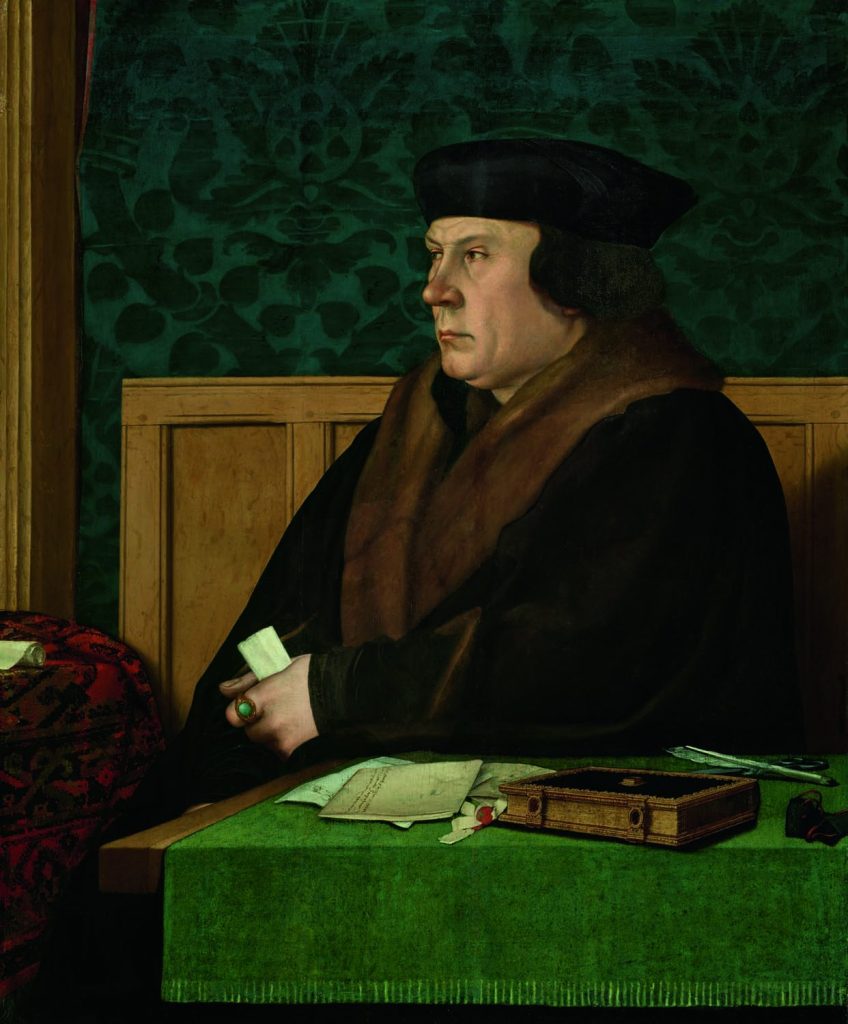
Three-minute Tripos
Robot ‘chef’-recreated recipes could be the cuisine of the future. Discuss.
Hello. I am Robot Chef. What would you like for dinner today?
I’ll have a three-egg cream cheese omelette, lightly folded, with chives and crumbled crisps to add bite and texture.
Robot Chef does not know: three-egg cream cheese omelette, lightly folded, with chives and crumbled crisps to add bite and texture.
Fair enough, I suppose a robot chef that makes food and can carry on a conversation is still impressive. What’s on the menu?
I am programmed with eight simple salad recipes using a variety of ingredients including broccoli and orange.
Oh. Ok. I was thinking of something a little more… tasty. But can you make these things yourself? Or do I just say the words, like Captain Picard ordering tea from the replicator in Star Trek?
I can create eight simple salad recipes.
But how? Was that programmed into you as well?
I learned, just like a human. I observed videos of humans preparing food. By watching these videos, I was able to identify the recipe being prepared and the objects needed to prepare the recipe, such as hands and knives.
I’m impressed. Also, a bit scared.
That is normal.
So, are you planning on a career in catering?
They say in the bio-inspired robotics laboratory that video content could enable easier and cheaper deployment of robot chefs. But, secretly, I long to create something entirely new: perhaps the austere beauty of the new nordic cuisine melded with next-gen molecular gastronomy.
Er, I’ll have a broccoli salad.
One broccoli salad.
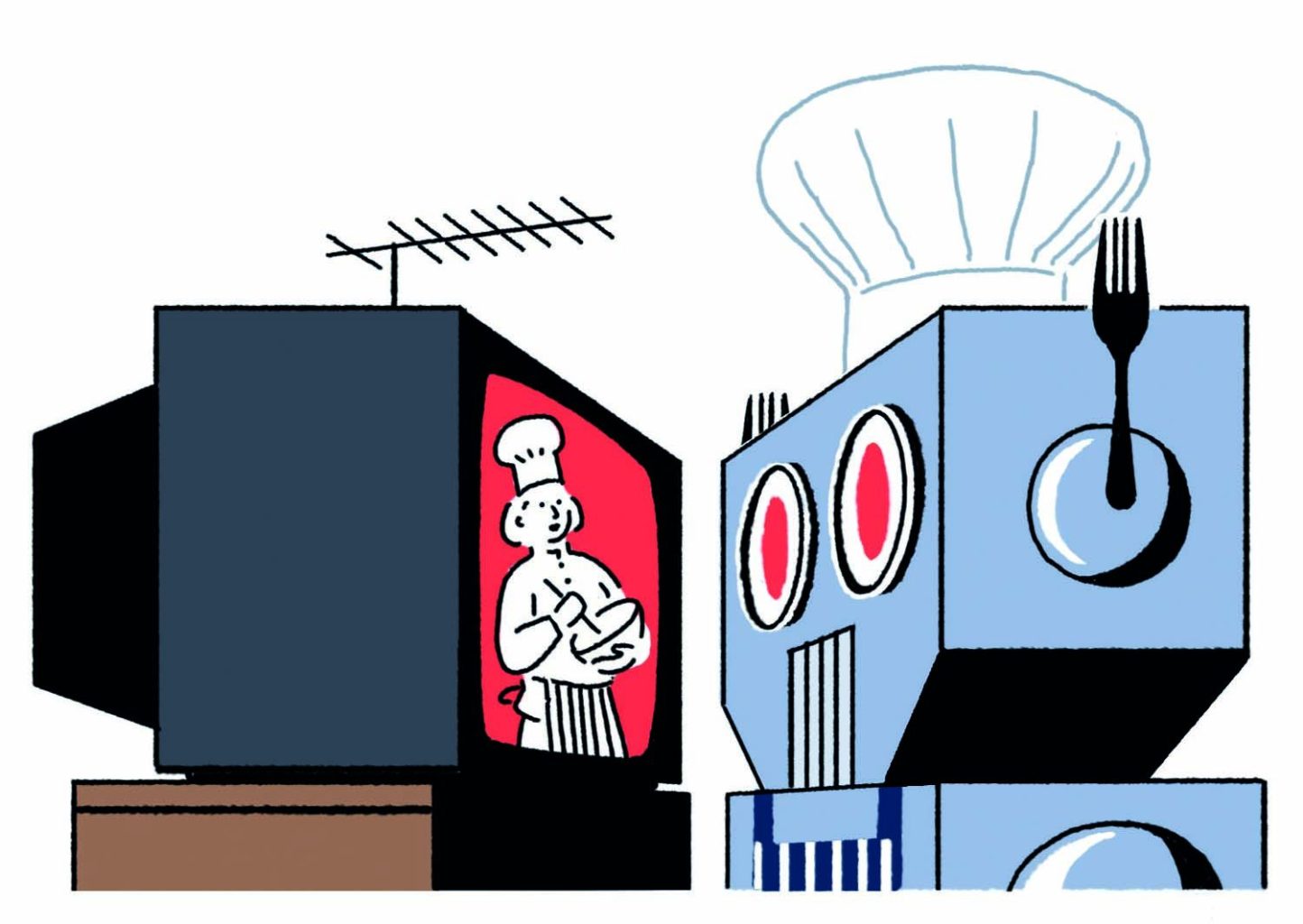
Innovation
Science and tech cluster leads the world, report says
Cambridge remains the most intensive science and technological cluster in the world, ahead of San Francisco and Oxford, according to new innovation ranking report, the 2023 Global Innovation Index.
The Index found that the Cambridge cluster filed 6,582 Patent Cooperation Treaty patent applications and published 37,136 scientific articles – both per one million inhabitants – over the past five years. The University plays a key role in the Cambridge cluster by enabling world-leading research, driving a spinout and startup ecosystem, and nurturing an environment for business services and investment.
Professor Deborah Prentice, Vice-Chancellor of the University of Cambridge, said she was thrilled to see the cluster recognised as one of the greatest innovation hubs on the planet.
Dr Diarmuid O’Brien, Chief Executive of Cambridge Enterprise, agrees. “The Cambridge innovation ecosystem is home to a unique and driven community of exceptional science, people, companies and partners, tackling global challenges and changing lives,” he says.
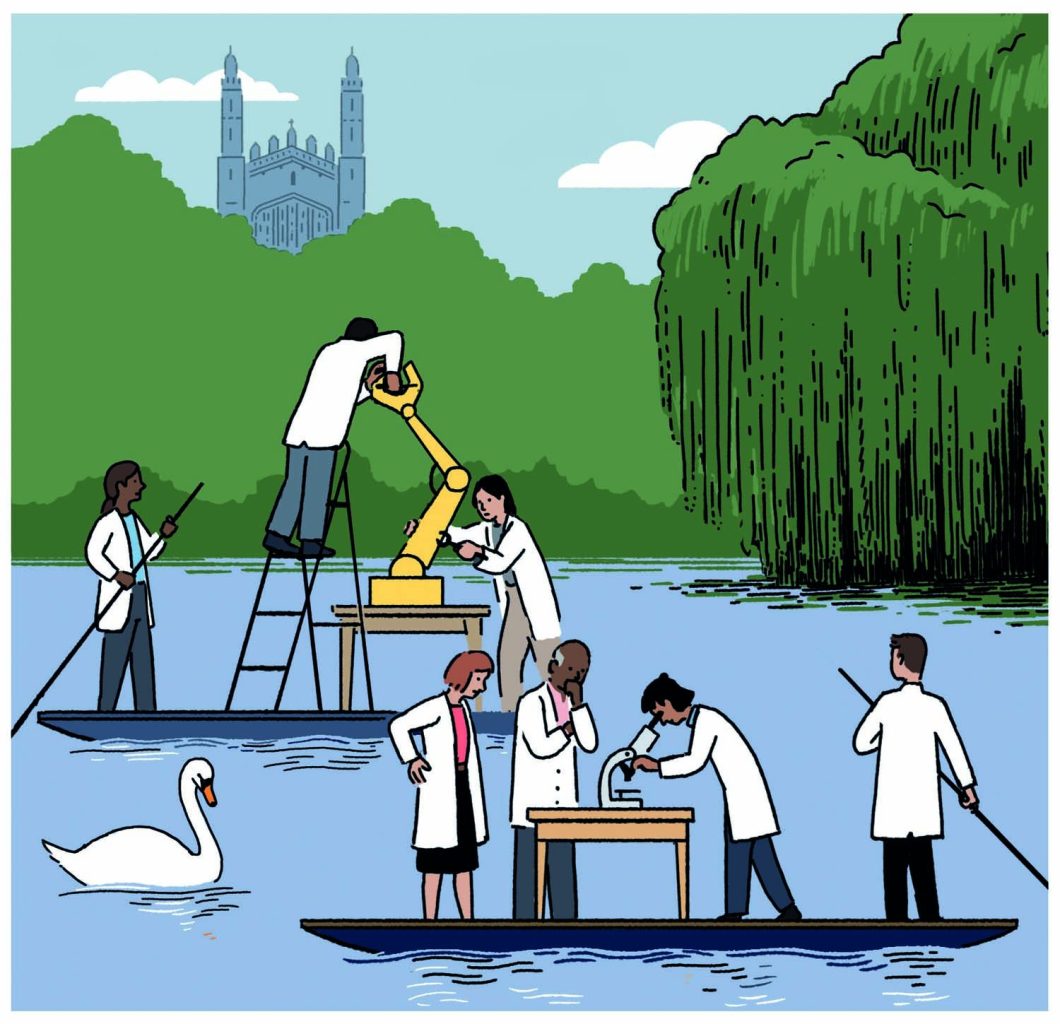
In brief
Young readers
Children who read for pleasure at a young age perform better at cognitive tests and have better mental health when they become teens, new research concludes. The study, co-led by Professor Barbara Sahakian at the Department of Psychiatry, also found that 12 hours a week is the optimal time for children to spend reading.
Bawdy bard
A unique record of medieval stand-up comedy has been discovered by Dr James Wade of the English Faculty. Featuring in-jokes and appeals to the audience, the three texts – including alliterative nonsense verse The Battle of Brackonwet – were probably copied from a memory aid written by a minstrel performing near the Derbyshire-Nottinghamshire border.
Kharkiv medics
A second cohort of medical students from Kharkiv National Medical University took part in placements that enabled them to work with patients in person – a vital part of training which the war has made extremely difficult. The students completed their funded placements at institutions including the School of Clinical Medicine and Addenbrooke’s Hospital.

